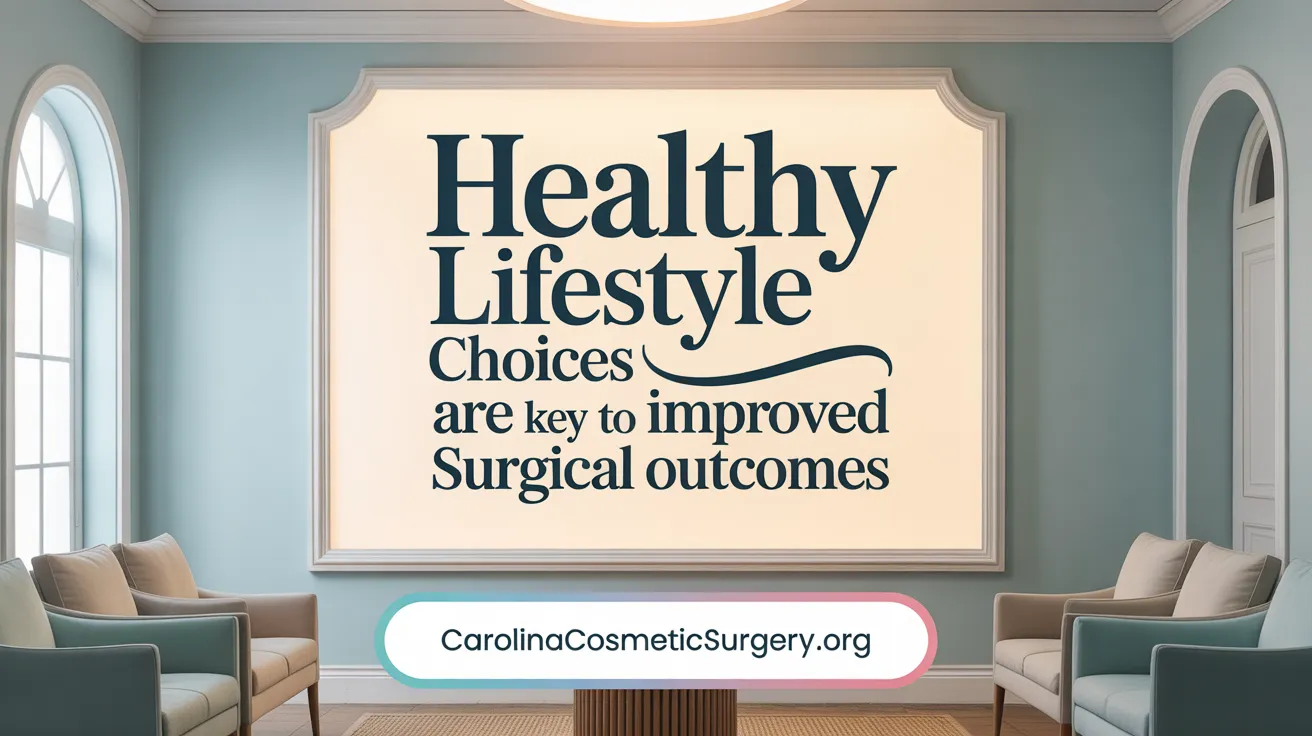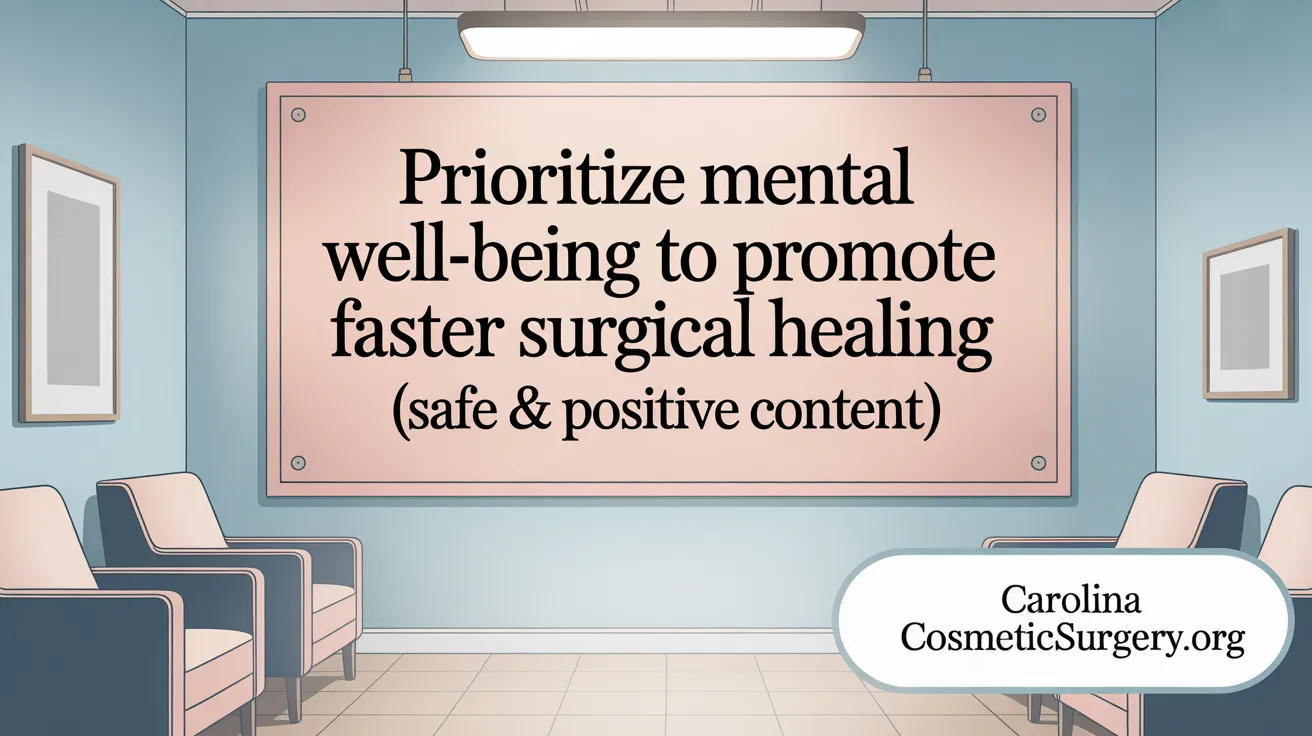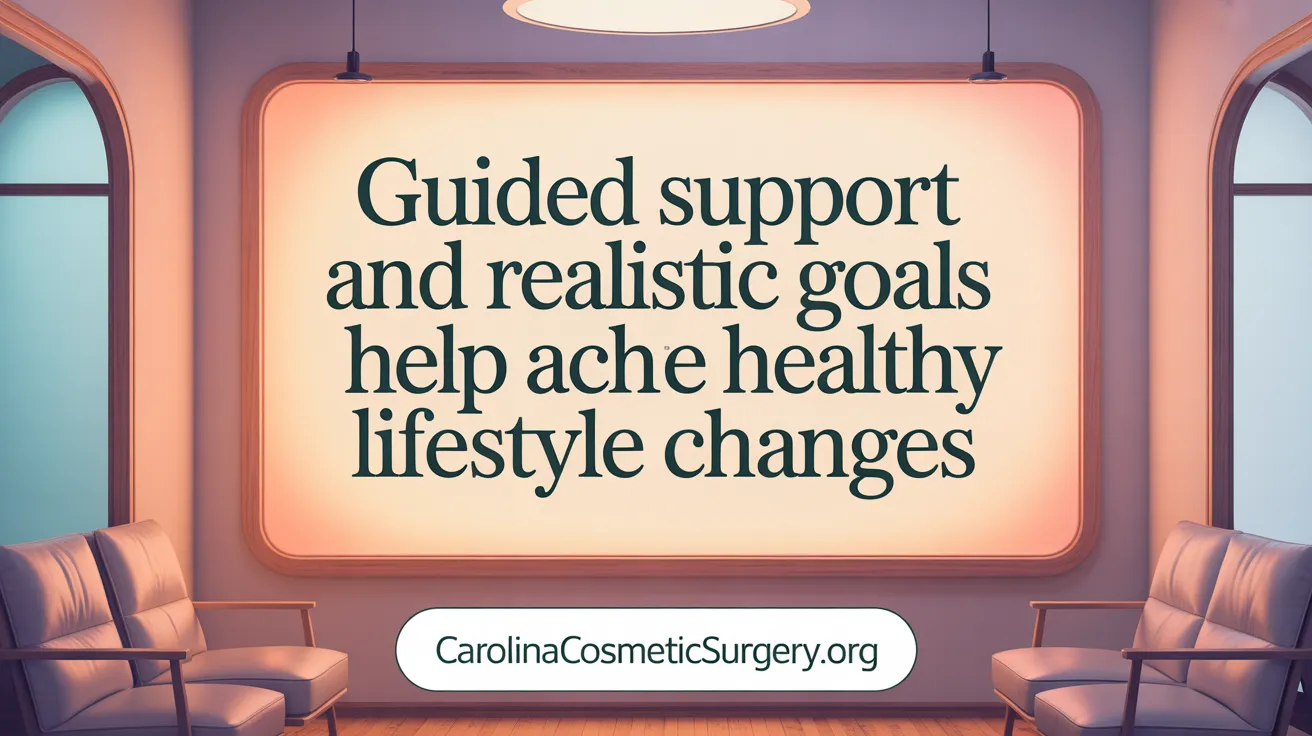Understanding the Crucial Role of Lifestyle in Surgical Outcomes
Surgery, whether elective or medically necessary, is a significant event that challenges the body’s capacity to heal and restore function. While surgical technique and medical care are paramount, an often underappreciated aspect that profoundly influences recovery and results is the patient’s lifestyle. From the foods you eat to your physical activity, smoking status, and stress levels, daily habits before and after surgery can either support or hinder healing. This article unpacks why your lifestyle matters so much to your post-surgical outcomes and how making informed lifestyle choices can optimize your recovery and long-term results.
<!-- VIDEO:eyJsaW5rIjoiaHR0cHM6Ly93d3cueW91dHViZS5jb20vd2F0Y2g/dj1sZE02ckY4c3FFdyIsImltYWdlVXJsIjoiZGF0YTppbWFnZS9qcGVnO2Jhc2U2NCwvOWovNEFBUVNrWkpSZ0FCQVFBQUFRQUJBQUQvMndDRUFBa0dCd2dIQmdrSUJ3Z0tDZ2tMRFJZUERRd01EUnNVRlJBV0lCMGlJaUFkSHg4a0tEUXNKQ1l4Sng4ZkxUMHRNVFUzT2pvNkl5cy9SRDg0UXpRNU9qY0JDZ29LRFF3TkdnOFBHamNsSHlVM056YzNOemMzTnpjM056YzNOemMzTnpjM056YzNOemMzTnpjM056YzNOemMzTnpjM056YzNOemMzTnpjM056YzNOLy9BQUJFSUFGTUFsQU1CSWdBQ0VRRURFUUgveEFBY0FBQUNBd0VCQVFFQUFBQUFBQUFBQUFBRkJnQUVCd01DQVFqL3hBQTlFQUFCQXdNQ0F3WUVBd1VIQlFBQUFBQUJBZ01FQUFVUkJpRVNNVUVIRXhRaVVXRnhnWkdoRlNNeVFsS3h3ZkF6UTJKeWd0SGhOMVJ6c3NML3hBQVpBUUVBQXdFQkFBQUFBQUFBQUFBQUFBQUFBZ01FQlFIL3hBQW5FUUFEQUFJQ0FnRUNCd0VBQUFBQUFBQUFBUUlERVNFeEJCSWlFMEVqTTFGeGdlSHhGUC9hQUF3REFRQUNFUU1SQUQ4QWJ1MTVpK1I3TzVlN05mNUZ1YmdzRXVSMmtaNzRsUXdTYzdZejZHbEdmZE5VNmU3TTI3eXZVc2laTHZLb3dZTGpZekZDZ3BTZ2trbkpQTE9CeXJRdTF6L3AxZS8vQUFEL0FOazBpYTFpUHY4QVlkcDExaHBiaGl0eFhscFNNa0pDTVorOUFXclRKMUZwVHRFdEZrdVdvSk4zaDNLS3R4d1NlYUZCS2p0a25HNlBYclN5THRyQzVhUXV1dDBhcG1NR0xMNEdvYllBYTRPSkk1Y3YyK29QTDNvMHhlNG10KzFXd1RMQ2w1Mk5CZ3VDUzZ0c3BDQ1VyR1Bxb2ZXbEppK3hyWjJhWHJSa3RxU2k5T1RzTnNkMFR4QUxRYzUvMG5hZ1AwUHBxZXU2NmV0bHhkU0VybHhHbmxKSElGU0FvL3hySSsxZlZOL3N1dldrV3k0U0c0TWFJekpmam9WNVZwN3doVzN2a1pyVnRIeFhvR2s3TkVrcDRIbUlMRGJpVDBVRUFFZlVWbDJ2cmVicDJtM0tHbE9WTzZhY0NQOEFObFJIM0FvRGgyazZ0dmJPdm9zZXozTitQYm1sUldYbTJsNENsdUZTOS9pbXJ2YkRxQyt0WDlGdjA5Y240ZmdyWXViSjdsUkhHT0xHL3dBQVB2U00wWkUvVEZ0dk10UDU4elVNZHNIMVEwMXdqK2RNaytEZjlVNi8xaTlZREREU0dmdzkxVXRKSVUyUmdoT0J6eWcvYWdDdmFkckM2eHRDNlh2Tm5uT3hYcG5BdHd0cS9WbHZKQitkZG9HcUoycXRiUldMZGNwRWFEY05QbDFMYlRtekw1NGtrai9FbFF4OHFUWTh6OFEwSG9xSzhPTmNPLzhBaG5FcUhUSVVBZmtzVVkwQllGNmI3YTVsc0lWM0RjWjFjWW5sM1NzS1NCOE1rZkVHZ1BVVFdGL3VPbTdScHR1NHZ0Nmpjdks0VXA4Sy9ORGFEbFNzKzNFQi9wTmJtMG5oYlNuSk9BQmtuSnJKTEhhNHlPMys4T0phL1JENzlHMnlWcVMyRkVmSEt2cWExMmdFWHRRMXV6cE9QRVovTVUvS0tsWWFPRmNDZWdQVEpJR2ZUT044Vml1cHRmUFhhRW1IRUxyVGJpVDRrdU9xVjNwem5jL0xiYjBGTlBhck5oWFc1T1hHSzZtWjRJS1pkQ2lPN1p3Y1l6KzhUeUg5SE00T25icGNtZzlIakVOTEpLU3JiSTloNlVCVVJjSDBxUXBMam9LTndFdUVZOVA1ZlNtclQzYVJmN08rZ3NUWkxyUEZsVEVwOHVnK3VPTGNkZVgzb0xKMGRlNHJSZWNpY1NFN25nVUNjVUtmVXB0MVhFZ3BYK25IcFFINlhzL2FyWTdsS3Q4Tkt1R1JJU252UXBYRDNTajAzNS9LbjF0eExxUXB0UVVrOVJYNHBRQ3RRNGNrZ2JBYjFxZll2cmVYQnZzZXlUWEZMaFRWRktBcis3ZEl5a2owQnhqSHJpZ041ZlA1aHFWNGZQNWhxVUF1OW9tc25OTC9BSVpEaFd6OFJ1TnplTFVkZ3I0RTdZM0p4NnFUdHQxMzJvZE8xcGZiTm95NFhtL2FhYWh2eFhHME54dkZCU1hVcVVBVGtaeGpQS3AyaDZlR3FsVzJUR3VTcmRQdHpxbkk3NlU1eG5oUExJM3lrYjFtOTMxSmVybG9iVjFudmsxTndYYlpiQ0VTZ2dEaUhlNEkyL3lqNjBCcVV2V0l0OTYwdGIycmF6aSt0OGExaGVPNTJCMkdOK2Z0U3ZLN1VicWwrOFNZdWtHcE1TMHlWTlB5Ukt3VWdLSUJ4dzU2ZE0xVHUwdEQrcnV6WXRsS3U3akFrSlBUaFQvc2FTcGMrK1JMVnJYOFA4TCtGdjNKVGN6akJMbzRsa0RoNlk2SDQwQnIxKzdTbHNNMkJyVDFvVmNiaGVvNGtNeDF1aEhkb3huYyt2NnZieW5ldms3V2w5dEdrcmpmYjlwaHFIS2l1TkliWjhTRkI1S2xBRThRempHZVZKWWppMjlvK2gybzhsSzJVV1B1bUpHTmxxN3Q3Q2dQY3FTY2U5VXIxZnIxY3V6N1Y4SyszRHg3a0c1TlIwT2x0S05rdVlKQVNCenhRRC9iOVpYOWRsdUYwdXVrbTRNS05BWE1ZWDRwS3c4b0FFSndCa1pIV2hkcTdWYmlYclM5ZGRMQ0hiTHM4R1dwYmNvSzNKeG5HUFgxeDFxckdUZG92WnhldnhXL2k1TXZXZkVkanVrbzhPTzdPMlJ6MklIeXBLdFR0Mm5EUTFwdTcwVm16K0k3NklwdEJLeVVxL1NzK3BPd3grOVRRTlhjMTRVU2RYc2kxTTQwOGdPSVBlZjI1MzU3ZVhsNzE0MHhyaStYVUl1ZHkwc21GWnpHVytaNlpTVmtKU2txR0U4OThZcEtmZENyajJxbjkrT1AvcWpYWnBDdWE5T3NJdVdvQkp0TXEzS1pSYis2U251UXJyeGN6Z1pIem9BdHBUWE9wZFJ5NHN5TnBCQ0xOSmU0UEdlTFR4SVFGWUtzY3pqSExGUzZkb1Y5c2w5alI3NXBnUjdYTG1lR2FsSmxCU2xBbkFWZ2UyK0RpazlINC8yYlhLeHc0R29oTnRNcWFHakRXMG5aS2xEUHI2bmNFYjAwWEcxdTZpN1FUS3ZiL2VXbTNCRGtHS2g0QUIwWXlwU1J2ejlmNFVBbTlvdWlpeHEwQm95RVE1c2p2WEVrNWJKd1NmbnQ5NlpZTVZwcENRa0FKU050dVZFKzArK3N4MDJ3b3R6MDJTbGExSlMwTmtKd0FTZnFLRzJlYUxyRUwwTmdsYVI1a0svWlBvYUF1UHhtWkVkeHNoU2d0SlNTT2xaaHJMVE1tM3VDU2NPc3VLeWZMeU5OajF5dTdjdHhNaTV4V0cwYnFiUXp4Y0E5MWRQaWFQUm1VM09KM004dHkyVkRCVUU4Skh2L0FNaWdNR1VnSWR5RmtBOUVwL25YeHQxMkM4eklqTDRYV0hFdUlWdnpTY2cvV3RBMVZvbVBaMEJVTjl4MWh6SkFkM1VqSFRJRzRwSVJicGo3NkdvMGQyUTlqSmJhUVZFSjlUaWdQMWMxTFJNanNTMnlDaDlwTHFTRGtZVU1qZnJ6cjVTOW9RUHM2TnN6VXNLUzhpTWxKU3BKU1VnRWdKSU8rUU1ENVZLQVh0VTJ5M2FrUkdSY1VsUlpLKzdJV3BPTXB5ZVIvd0FJcWxick5hYmZhMzdTMUVhRVdhckQ0Y1VTbzRRRkhQbXpzZHR0aHoySjNEcXZ4ZEJTRUt4dnpXUjdkSzlHNXZLUVJqS1NjbEpkV2NuR0QxOU5xeDVaek92aGVrWHlscmxCTFQrbkxQWTdrMU9nd2dKUTJiTHExS0xlU2xLaGdubU9QSDE1VVJnMmEycWpYU0dxR253MXlVWFpRVTRyS3pqaXlOempCSTVmTGxTNjNlMytJcFVSNWxaVU9KZlBPYzgrZWQ2TjI2NDVTTzc0RStYQnlDUUU5ZHMxV3Zydy9hNzRSTDFsOEpIdTdXU3ozSzJ3N2RMaGNiZHVRVzJGQjVRV2hJVWxPQXJQTGRPeDlPWXI3YU5NV0pObG4ycDJOM2NOODk2K0Erc3FVVzFZQno2ZlQyenpydTIvbDVMYXcyVXJTWFZjWEVjWWNTZ0tPVi9BNTZZd000cXdMbDRWSVVocHBzcktPSWtuYmpKeWQxZjRTVGpjNDNBeG1xWThwcTF1K1AyL285ZUphNkFTZEpXYTFHVW0xeDFkMU1pbHBmRTRzbGFWWjhvMzJ6akZlWHJaYlZRNE1OU0VsaTI0ZVlVbHdoVGVRcFlQNnMvczljZlFWZGxTbjdtOGxMVDNjdUlXa0w3dFl5MlNmSm5oWHpJOHc2WTVHcVRjYVQ0VnVTeE5XV2twU1VKVXBTVkpCQ01mdEhHeTFjdlQzcWYvQUVWZVQxbklsdld1UDEvZ2k4YVMyMGRmd3lQM2wxVzYxd3F1cmFoS0NWNUtzQW5CSEY1ZW9xcmJOTVdlMHp1K2hSVnBkTGFrS3c0dFo0RklPU0JuZmJPM3czM3JxcVF4RnozN3JpMTQ2dUtPZW1lZEQ1ZDhYM3hTNHBZUmdEaDRpRXEyeHVNNE8yMWROK0g1TXg4clcvOEFUTXNzTjhMZ3MydlI5bXQxd1JPWWpBdVIzTWhLM1ZIZ0lVVWtnRTc0SStXUlJLTzNDaVgrVGRtVWtUSkFDWEZsUklJR01iZklVR2lYbHB4NVNsTFVRTVk0bkZIcnYxOWFwdjNKTGsxSlFlRkt5TnMxN2o4Yk5DL0VyYlllU0crRm9kYjA0TGdHbmlvOTYwNEhFQUFZSnhqY2RSdjljVjYwSFpXYlhBZERQRWt1SzlTY0RsMStGQnJmTUNwVGFDclpXUnVhTVJiNHRwencwVnRqQ0ZibHduei9BQUk1VjdlT3NkZXRIazBxVzBjN2hwdFFtdXI0dzZ5Ly9hTkt6d240anJSbXpXdHFFZ0piWmJaUmpBUzJNRDZWOThiM2ovRVI1VmRPZUt2RjVQQU9IblVTUXY2MXRuamJhcExLaUhFOGducm5iRmVMVEJoMkJrSkRDemxBTHl5a0hqMnhrL2VqQlNwVHdLdDkrUnJ3M0ZGeWRkY1ljSlVEM2ErSWVWdmhKenQ2NTljMEJacy9mTlF5MnRRUEE2NGxKOWdvNCsxU3V5Z2huaGJSK2xJd00xS0EvUGlKU3dvK2JyVnBpYzZTQWtrMEZXNFNzaElQT3JUWWM4TXRZZEtGamtsSTNxaHpzMmUya0dtcFhFb3BPeS9Ram5WNjJUMUlsY1BlRkpHNHdTRFNxaCtVdHZoZVc0VGdGQ2xwd1VxOUt2SWNXcmdlSGxVUmsvR3E2alhCT1d1elFvYnFscUdGTFBQR1ZFOHprL1VqUHhvc0xhVVJpODhYQUNQMGh3aml4MU8vM3BhMHhPU3R4c1BZeHRuTldMMWNKMTJ0bHhkU2xUVGJETHFrdGptU0FmNFlySmM4cVViWXhwOGluTXVWd2xYNVVTMTNCOXhLM1RncWNVVWc1NWpma01jL3BUUmNiUkx0N1NCTHZMeGxPZ0VCd0tJV2RzNXh5R3lmWHBTWm9wNUxXcFlpMWdGT05zLzE3R3RFa1BJY0NFWlV1WUpLeVV1b3lOd09SNjdpdDZUaGZIN0hPMU41Tk5jTVFyeEJ1ekMzNUswckxiV0E2Q1FlNy8zQkdDRDcvU2g0NVVoZ051RWc1QVB3eldpYW9XWEZxWlcwa09LdGhMNUg3b1dPRCtKck9Yb2hheXB2ZFBwNlZxeGVTN1M5eWk4YXgyNVJUZWZmaXV1dGhaMkpTUGNaMnJ5NUxXbDF2emtZeFJMOHVRcU9TampjU3BQRnR6d2FxNnlmUzdleXR0cExXRzBncFNPb3oveFY5MVNTMlZPWmJlaHBzOTZpVy92WFptdzdraENsRFpPZXRFNDVrOFlQQ3dPSldVS1V0UnlQZ0JTeHBQVURmbmczRnRwMXBiWlRoemtvSHBSdlQwMUVpTWhMU2dHMlZsc0FuSkFCOHYyeFZHWExXWEk2b1JDaVVrTlJZdVpTRnR5b25DQ0NVbHM1UHo0cU1ScGFTUWs1R09ZTkRVdnRkMEZxWHlITE94cWd1N3RyZUxNVGhXc2M4SFlWQTlHbGNoUGx4MW92YkFsdUc3allsZVQ5UCthVjdQSGNmZERqeWdRa2NoeXJucURWakdtcGJUY2hiZkJLY1NGSlVkMHA2citBMm9BNUljL05POVNsbDdXRmpVdmlST0MwbmtVdHF4L0NwUUdVZUZ5bzRIV3JzV0tyTzZNajNyaWhZS2o4YUlSbk50aldTbXpvektMQWpnSXh0dnpGRGxKQVdyM05YMXU0UnNkNm9LUG5PYWlpZWkxYlpCWWZ6bnkwMnNjRDREZ1dFaFhrY0I1SEk2L0VaK2xJNkhBbFZNbHFrZ280Vkh5cUhDcitSK1IzcXU1ZlpxOGZKNjBnWnFQU1VyVDdqTW1NK2tzTDh6RGdPNkR6QVA4QXZYcUZmSnZkSVJLU2xEeU1LU3R0elk5YzhPTmpnZEQwNVZlMVhIdThobG1XMkZQUldRR2lsQnlXbEQyNmc1emtVcFNYbjBGQ2x0TFFzTEI4eVNOaG4rVzFkUHhjZUxKajNiMnptZVg5VEZrYW5vYjVONER6VTVTK0V1eWNKZWNLUm5HTWdESEljelFkVVZwUXlwWjVjczBDUTlJWDVnMjRVNUJWaEpJOVRtb2k0T0l3RkU1NTcxMG8ralBTUnpiVnZzdTNCM3diU2xNQWNZNWUxTGtseFRyZ1dza2tqY21pTDgwdWtCUnlNYjBQazQ3MGNJMnJQNVduVzBXWWVGcG5BbkZHcmNweU8zbGx4U09Mbmc4NkRMR0R5b3hIZWFTd0ZGWGxBM05aS0xXTXVsdzdjWk1saDlTM2U2U2hhVXFWdGdrZzdmU3RBdDlwak5Edk80UWc0MndLeURUbDFrV3k4SXVEZ3doMGhLMEtQOTBmNkJyVnI3Zlk5bHRwbExWeEVqOHBzSEhHbzhobXZDSjcxWnFpUHBXM29ham9EMXdrYk1NRGYyNGpqcDdkVHRXTzNLUTljTGs1SnVNaGNtUU5uQ1R0eFozQ2ZZY3ZsVWx6WmN5WS9kWmpwWEpVb0pDenNFcUlPT0gyQUJ4NmJWeWl0SlNsSVNNZEJRSFF0dk9IaTNRT2dCcVZZSjRUak5TZ1ByWlBHZmpSQ01UOXFsU3MxblNrN3FQbE5EcFNsQWpCcVZLalBaSjlFWTVtbUN6N3JTRHlxVks4c25IWVl1VHppSWEyMExJU3JHUjY0cGVlVVZCUEVjL0dwVXFFbnZsL2xvWTlPTklNSjVCU09CZjZoNjByWEJJUktkUWtBSkN5QUtsU3JxYjBqay9kZ3lleTE0ZHhYZHBDZ01nZ1lvRTkrcE5TcFdqRzI0QjJ3RHpBT045Njh6RkV4WFZFbklPUHVLbFNyTDdJbHRZQldnRWJaU1B0UlBWVWw1Nll3MjY0VkliaklLRW5rbkkzcVZLZ0FPZDdXTS85NnI3SUZkb3Y2Q2VvcVZLQWpoUEdkNitWS2xBZi85az0iLCJ0aXRsZSI6IldoYXQgaGFwcGVucyB0byB5b3VyIGJvZHkgYWZ0ZXIgbXVsdGlwbGUgc3VyZ2VyaWVzIChjYW4geW91IC4uLiIsInNuaXBwZXQiOiJtZW1vcnkgI2Nocm9uaWNwYWluICNzdXJnZXJ5cmVjb3ZlcnkgU3VyZ2VyeSBhbmQgYW5lc3RoZXNpYSBhZmZlY3QgeW91ciB3aG9sZSBib2R5IGFuZCBtZW50YWwgaGVhbHRoLiBDYW4geW91IHByZXZlbnQgdGhlIGNoYW5nZXMgdG8gLi4uIn0= -->The Impact of Diet, Smoking, Alcohol, and Exercise on Surgical Recovery

How do lifestyle factors like diet, smoking, alcohol, and exercise influence surgical recovery and outcomes?
Lifestyle choices significantly impact how well a patient recovers from surgery. A nutritious diet rich in proteins, vitamins, and minerals supports tissue repair and strengthens the immune system, reducing the likelihood of infections and speeding up wound healing.
Conversely, harmful habits such as smoking and excessive alcohol consumption can impair blood flow, weaken immune defenses, and delay healing. For example, smoking constricts blood vessels, reduces oxygen to tissues, and increases risks of infections and poor scar formation. Alcohol can weaken immune response and interfere with blood clotting.
Engaging in regular, appropriate physical activity enhances circulation, maintains muscle tone, and helps prevent complications like blood clots. Proper hydration and managing stress through relaxation techniques also contribute to positive outcomes.
Overall, adjusting these lifestyle factors before and after surgery not only improves recovery times but also minimizes potential complications, leading to more successful surgical results.
Nutrition: The Cornerstone of Healing Before and After Surgery

Why is nutrition especially important after surgery?
Post-surgical recovery heavily depends on proper nutrition, which provides the essential building blocks for tissue repair and immune support. Adequate nutrient intake accelerates wound healing, reduces the risk of infection, and helps restore energy depleted during surgery. It also plays a pivotal role in maintaining muscle mass, especially since activity levels are typically reduced after procedures. Eating a balanced diet rich in proteins, vitamins, and minerals supports the body's natural healing processes.
Role of protein and vitamins C, A, zinc
Protein is especially vital for wound healing and muscle repair. Lean meats, eggs, beans, and dairy are excellent sources. Vitamins A and C, along with zinc, contribute to collagen production, fight inflammation, and strengthen immune responses. Citrus fruits, red peppers, berries, and leafy greens supply vitamin C, while sources like sweet potatoes and carrots are rich in vitamin A. Zinc can be found in nuts, shellfish, and legumes.
Risks of malnutrition and inadequate calorie intake
Malnutrition or deficiencies in key nutrients can impair tissue regeneration, delay wound healing, and increase the likelihood of infections. Even a slight calorie shortfall can weaken the immune system and reduce the body’s ability to recover effectively. Ensuring sufficient caloric intake, especially when appetite wanes, is essential to provide the energy needed for healing.
How nutrition supports immune system and tissue repair
Good nutrition strengthens immune defenses by providing antioxidants and essential nutrients. Fruits and vegetables supply antioxidants that combat oxidative stress. Adequate hydration and proper intake of vitamins like C and A, along with zinc, support collagen synthesis and skin elasticity, vital for wound closure and scar formation. Consistently consuming nutrient-rich foods pre- and post-surgery optimizes the body's ability to repair tissues and fight off potential infections, ensuring a smoother recovery process.
Strengthening Your Immune System and Overall Health for Surgical Success
How long is your immune system weakened after surgery?
The immune system can remain weakened for a period ranging from a few weeks to several months after surgery, depending on the extent of the procedure and any complications. Major surgeries, such as those involving removal of lymph nodes or extensive tissue disruption, tend to cause longer immune suppression.
During this recovery time, patients are more vulnerable to infections in areas like the sinuses, lungs, skin, and urinary tract. Factors such as anesthesia, additional treatments like chemotherapy, or complications can prolong immune system recovery.
To support immune health during this period, patients should prioritize rest, maintain a healthy diet rich in immune-boosting nutrients like vitamins C and zinc, manage stress through relaxation techniques, and follow all medical advice to reduce the risk of infections.
What is the relationship between overall health and surgical success?
Overall health significantly impacts surgical outcomes. Patients in good health tend to have stronger immune responses, better tissue repair capabilities, and higher resilience, which all contribute to smoother surgeries, fewer complications, and quicker recoveries.
Good physical fitness, including cardiovascular health and muscle strength, enables the body to cope better with surgical stress. Mental preparedness, including stress management and emotional well-being, also plays an essential role in healing.
Communication with healthcare providers is crucial; trust, clarity, and adherence to medical guidance enhance recovery chances. Advances in surgical procedures and comprehensive pre- and post-operative care further improve safety and results when combined with effective health management.
Healthy lifestyle habits such as balanced nutrition, regular exercise, adequate sleep, and avoiding harmful substances like tobacco and excessive alcohol ultimately boost the chances of achieving optimal surgical outcomes.
Mental Health and Stress Management: Unseen Influencers of Recovery

How do stress and mental health affect post-surgical recovery?
Stress and mental health are critical but often overlooked factors influencing how well a patient recovers after surgery. High levels of psychological stress, depression, and anxiety can directly impair the body's ability to heal.
When a person experiences significant emotional distress, it can weaken immune function, making the body less efficient at fighting infections and healing wounds. Studies show that stress reduces cytokine production, which is vital for immune responses necessary for tissue repair.
Patients under considerable stress often face prolonged hospital stays, increased complication rates, and even higher chances of readmission. This is partly because stress hormones like cortisol can slow down cellular repair processes and increase inflammation.
Conversely, positive mental health—supported by strong social networks, emotional resilience, and effective coping strategies—can promote quicker healing and better overall outcomes. A calm, optimistic outlook tends to boost immune responses, reduce inflammation, and help the body recover more swiftly.
Additionally, the surgery itself can sometimes affect mental health, leading to feelings of depression or anxiety, especially if the results are not immediately visible or if the recovery is painful.
Addressing these psychological factors proactively can make a significant difference. Techniques such as relaxation exercises, meditation, and counseling can help manage stress levels. Providing emotional support and fostering a sense of control over the recovery process can improve patient motivation and compliance with post-op care.
In summary, maintaining good psychological well-being before and after surgery not only enhances healing but also reduces the risk of complications, ultimately contributing to a smoother and more successful recovery.
Lifestyle Adjustments to Maintain and Optimize Surgical Results

What lifestyle changes can help maintain and optimize post-surgery results?
Achieving long-lasting and optimal outcomes after surgery requires a commitment to healthy lifestyle habits. Proper nutrition plays a vital role; consuming a diet rich in fruits, vegetables, lean proteins, and whole grains provides essential nutrients such as vitamins C and A, zinc, and antioxidants that support tissue repair and immune health.
Adequate caloric and protein intake is critical, especially in the recovery phase, to promote healing, rebuild muscle, and prevent complications. Patients should focus on hydration by drinking sufficient water daily and avoid dehydrating substances like caffeine and excess alcohol.
Avoiding harmful behaviors significantly impacts healing. Quitting smoking at least 4-6 weeks before surgery enhances blood flow, oxygen delivery to tissues, and reduces risks like infections and delayed healing. Likewise, limiting or abstaining from alcohol reduces immune suppression and bleeding risks. Protecting skin from excessive sun exposure with sunscreen and avoiding tanning helps preserve the longevity of facial and body surgeries.
Incorporating gentle physical activity, such as walking or stretching, can aid circulation, prevent blood clots, and maintain muscle tone. Managing stress through relaxation techniques like meditation or yoga supports immune function and overall well-being.
Following medical advice diligently—including wound care, activity restrictions, and attending follow-up visits—helps ensure sustained results and reduces the risk of complications. Together, these lifestyle modifications create a foundation for effective healing and longer-lasting surgical benefits.
Practical Steps and Support for Implementing Lifestyle Changes Pre- and Post-Surgery

Importance of pre-surgery preparation including diet and cessation of harmful habits
Preparing for surgery involves making healthy lifestyle choices. Eating a nutrient-rich diet, especially increasing protein, fruits, and vegetables, boosts your body's ability to heal. Avoiding smoking for at least 4–6 weeks before surgery improves blood flow and reduces complications. Limiting alcohol intake at least two weeks prior helps strengthen the immune system and supports better recovery.
Role of social support and healthcare professional guidance
Support from family, friends, and healthcare providers plays a vital role in maintaining healthy habits. Professionals can guide personalized plans to quit smoking, reduce alcohol, and promote proper nutrition. Engaging with multidisciplinary teams, including dietitians and counselors, increases motivation and adherence.
Barriers to lifestyle changes and strategies to overcome them
Challenges such as limited time, access to resources, or lack of knowledge can hinder change. Setting realistic goals, seeking social support, and using digital tools or support lines can help. Addressing socioeconomic and literacy barriers and providing dedicated communication training for healthcare workers also improve outcomes.
Importance of adherence to post-operative care instructions
Following medical advice after surgery is crucial. Proper nutrition, avoiding harmful habits, and managing stress support healing. Gradually reintroducing light activity, maintaining hydration, and protecting skin from sun damage enhance long-term results.
Structured support systems to sustain healthy behaviors
Implementing organized programs, such as lifestyle front offices, encourages ongoing healthy habits. Regular follow-up, community support groups, and educational resources help patients stay motivated. Journaling progress and establishing routines like daily walks or balanced meals foster sustainable lifestyle improvements.
Embracing a Healthy Lifestyle: Key to Unlocking Surgical Success
Achieving the best possible surgical outcome extends beyond the operating room; it fundamentally depends on the lifestyle choices patients make before and after the procedure. Prioritizing nutrition, quitting smoking, reducing alcohol consumption, staying physically active, managing stress, and adhering to medical guidance together construct the foundation for optimal healing, fewer complications, and lasting results. While changing habits can be challenging, especially amidst the stress of surgery, leveraging social support and healthcare resources can empower patients to sustain these beneficial changes. Ultimately, embracing a holistic, healthy lifestyle is an investment not just in surgical success, but in overall well-being and quality of life long after recovery.
References
- How Lifestyle Changes Can Improve Your Surgery Outcomes
- The Impact of Lifestyle Choices on Surgical Outcomes
- The Role of Nutrition and Lifestyle in Enhancing Surgical Outcomes
- Healthy habits for successful surgery and recovery | Northside Hospital
- Plastic Surgery Results: The Significance of a Lifestyle
- Trusted Surgeon Guide | Lifestyle & Surgery Success
- Aesthetic surgery outcomes – Do lifestyle factors make a difference?
- Living a Healthy Lifestyle After Surgery
- A Qualitative Stakeholder Analysis Among Healthcare Professionals
- The role diet and nutrition play in recovery from plastic surgery | ASPS
